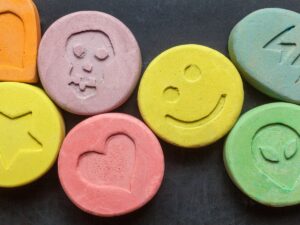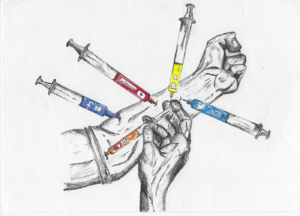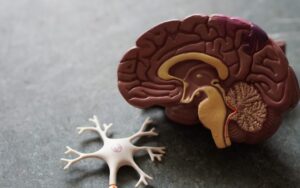The impacts of addiction on children are complex and far reaching. During this crucial age, children need to feel safe and secure–they also require love, understanding and guidance. And because children are still developing, they also must rely on their guardians for material needs like food, water and shelter.
Creating such an environment fosters growth and empowers children preparing them for life’s challenges. A parent who grappling with alcoholism, on the other hand may be neglectful, abusive or dangerous.
Alcoholism is also a progressive disease that gets worse over time, and even if things are okay for now there is no such thing as a functional alcoholic.
If you or a loved one is struggling with alcohol addiction it is important to consider the impact that drinking could be having on your kids. While alcohol addiction can be a hard habit to kick, getting treatment as early as possible is the best way to minimize harm for the whole family
Read on to learn the 10 potential consequences children can face as a result of parental alcoholism.
Developmentally – In the Womb
Alcoholism can impact a child before they are even born, in utero. Alcohol enters the bloodstream, easily passing to the uterus where it is absorbed more slowly. In its vulnerable state, a fetus can endure permanent developmental changes to the body and brain.
Also Read: How to deal with depression and anxiety
1. Physical Development
- Facial deformities such as cleft lip or palate: a gap (or gaps) that form on the upper lip or roof of the mouth.1
- Premature birth and low birthweight
- Hearing and vision loss
- Small head size
- Stunted height
2. Stunted Brain Development
The scanned brains of children with fetal alcohol syndrome (FAS) reveal smaller brains as well as malformation in several areas of the brain. Other research found that prenatal poor communication between several parts of the brain.2 Together, the developmental issues associated with prenatal alcohol results in cognitive issues that can persist into adulthood.
3. Problems With Learning and Attention3
- Memory problems
- Issues with motor control and coordination
- Speech impediments and problems with language development
- Trouble paying attention
- Poor critical thinking skills
4. Neonatal Abstinence Syndrome (NAS)
Drugs including alcohol, opioids, amphetamine, cocaine and can lead to what is called neonatal abstinence syndrome or NAS: a condition where a baby is born dependent to the drug that the mother was taking.4
NAS can cause a variety of withdrawal symptoms many of which may complicate the pregnancy putting the baby’s health and life at risk.
Disruption of Childhood Development
5. Neglect
In cases where child maltreatment has occurred, 40% involve alcohol and drug use. This amounts to around 480,000 kids annually.5
Child neglect is the failure of a parent or guardian to secure a child’s fundamental needs including:
- Physical Neglect: This includes securing material needs like clothing, food, shelter, or keeping them safe from harm.6
- Educational Neglect: Not enrolling their children in school or pulling them out too often are examples of emotional neglect.6
- Emotional Neglect: Ignoring, humiliating, or berating, intimidating the child or separating them from others.6
- Medical neglect: Not providing proper medical care for a child or refusing recommended and necessary care from a doctor.6
6. Physical Abuse
Psychical child abuse is the second most reported form of child abuse next to neglect; it includes any physical injury intended to cause harm.
Common forms of child abuse include:
- Hitting or beating (either with bare hands, or an object like a belt or a stick)
- Using objects like a stove or a lighter to burn the skin
- Kicking
- Suffocation by strangulation of holding a child underwater (even temporarily)
- Restraining using rope or tape.7
Alcoholism is believed to contribute to child abuse for several reasons:
- Heavily alcohol use can impair areas of the brain responsible for self-control, giving rise to violent behavior against children.8
- Heavy alcohol abuse causes the abuser to miss social cues and mistakenly assume that family members are treating them with hostility or disrespect; it may also cause them to misjudge the severity of their actions.9
- Child abusers who are alcoholics are more likely to perpetrate violence if they can place the blame on alcohol instead of holding themselves accountable.9
7. Sexual Abuse
Among both boys and girls, alcohol was found to be a risk factor in child sexual abuse or CSA; it was also found to be more common in families where alcoholism is or had been present.9 For women, alcoholism is also a risk factor for developing alcohol and substance abuse problems later in life.10
8. Emotional Abuse
In many cases, the impact of emotional or verbal abuse are just as damaging as physical abuse. And like physical abuse can be exacerbated by alcohol misuse. Situations involving emotional abuse may include:
- Verbal bullying
- Yelling or screaming
- Putting down for the child making mistakes
- Isolating the child from friends or family
- Ignoring or refusing to speak to the child
- Gaslighting – invalidating an individual’s perception of reality; especially when it means denying the existence of physical or emotional abuse.
Alcoholism and child abuse can also occur in the other direction. In other words, children experiencing emotional and physical abuse are at risk of developing alcohol or substance abuse problems as adults.
9. Trauma and PTSD
The exposure of physical, sexual, or emotional abuse at the hands of a guardian or another adult are traumatic experiences. Trauma is also associated with the development of other mental illnesses like anxiety disorders, depression, PTSD, Borderline Personality disorder and substance abuse disorder.12
10. Substance Misuse and Addiction
Trauma leaves lasting scars which if left unaddressed can follow a child into adolescence and adulthood. Without the skills to cope, it is likely that they will develop other methods, one of which is self-medicating using alcohol or other drugs.
Having substance abuse issues is also more common amongst those with at least one other mental illness; over 18% of those who struggle with mental illness also have a substance use disorder.13 Having a co-occurring disorder can also complicate the recovery process often requiring more intensive and engaging forms of substance abuse treatment.
Brief about Post-child abuse14
- 14% of children (1 in 7) experience neglect or abuse every year in the US.
- 33% of children (1 in 3) who enter the foster care do so as a result of parental drug and alcohol abuse.
- Child abuse is often thought of as just being intentional physical and emotional harm such as striking or bullying but it also includes neglect. Parents who fail to provide necessities like food, water, shelter, education, or medical care are also committing child abuse.
- Child abuse is traumatic; children who experience it may develop feelings of guilt or shame, reoccurring memories and maladaptive thinking. Without proper mental health services, they can go on to develop mental illnesses including substance abuse.
Treatment Options for Drug & Alcohol Abuse at All American Detox
Are you finally ready to quit drugs and alcohol once and for all? All American Detox is a drug and alcohol treatment and rehab center in Los Angeles California. Our detox and residential inpatient programs can help you overcome substance abuse in comfort and with confidence. For more information, call us today at (844) 570-1301.
Citations
NHS. (n.d.). Overview -Cleft lip and palate. NHS choices. Retrieved October 4, 2022, from https://www.nhs.uk/conditions/cleft-lip-and-palate/
Gadye, L. (n.d.). What is fetal alcohol syndrome, and how does it affect the brain? BrainFacts.org. Retrieved October 4, 2022, from https://www.brainfacts.org/diseases-and-disorders/childhood-disorders/2018/what-is-fetal-alcohol-syndrome,-and-how-does-it-affect-the-brain-082318
Centers for Disease Control and Prevention. (2021, December 14). Alcohol use during pregnancy. Centers for Disease Control and Prevention. Retrieved October 4, 2022, from https://www.cdc.gov/ncbddd/fasd/alcohol-use.html
Default – Stanford Medicine Children’s health. Stanford Medicine Children’s Health – Lucile Packard Children’s Hospital Stanford. (n.d.). Retrieved October 4, 2022, from https://www.stanfordchildrens.org/en/topic/default?id=neonatal-abstinence-syndrome-90-P02387
The relationship between parental alcohol and other drug problems and … (n.d.). Retrieved October 5, 2022, from http://preventchildabuse.org/images/docs/therelationshipbetweenparentalalcoholandotherdrugproblemsandchildmaltreatment.pdf
Neglect. NSPCC. (n.d.). Retrieved October 4, 2022, from https://www.nspcc.org.uk/what-is-child-abuse/types-of-abuse/neglect/
U.S. National Library of Medicine. (n.d.). Child physical abuse: Medlineplus medical encyclopedia. MedlinePlus. Retrieved October 4, 2022, from https://medlineplus.gov/ency/article/001552.htm
Gouvernement du Canada. (2012, July 26). WHO Facts on Alcohol and Violence: Child maltreatment and alcohol. Canada.ca. Retrieved October 4, 2022, from https://www.canada.ca/en/public-health/services/health-promotion/stop-family-violence/prevention-resource-centre/children/who-facts-on-alcohol-violence-child-maltreatment-alcohol.html
Widom, C. S., & Hiller-Sturmhöfel, S. (n.d.). Alcohol abuse as a risk factor for and consequence of child abuse. National Institute on Alcohol Abuse and Alcoholism. Retrieved October 4, 2022, from https://pubs.niaaa.nih.gov/publications/arh25-1/52-57.htm
Martie L. Skinner, Allison N. Kristman-Valente, Todd I. Herrenkohl, Adult Binge Drinking: Childhood Sexual Abuse, Gender and the Role of Adolescent Alcohol-Related Experiences, Alcohol and Alcoholism, Volume 51, Issue 2, 1 March 2016, Pages 136–141, https://doi.org/10.1093/alcalc/agv093
Trauma. Mental Health Foundation. (n.d.). Retrieved October 4, 2022, from https://www.mentalhealth.org.uk/explore-mental-health/a-z-topics/trauma#:~:text=Trauma%20can%20make%20you%20more,difficulties%20in%20your%20daily%20life.
Russ, S. (2020, April 29). One in three children entered foster care in 2017 because of parental drug abuse. Child Trends. Retrieved October 4, 2022, from https://www.childtrends.org/blog/one-in-three-children-entered-foster-care-in-fy-2017-because-of-parental-drug-abuse






